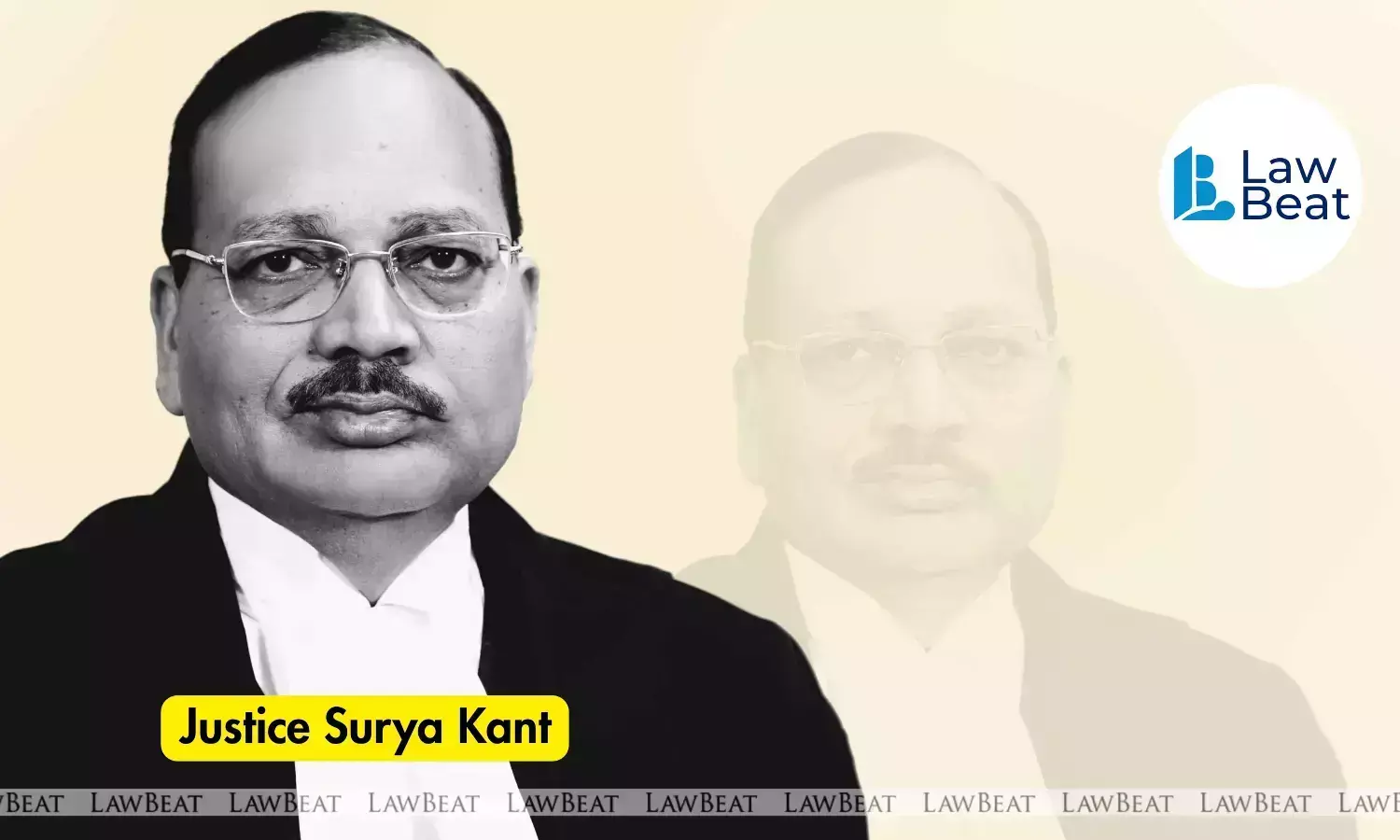Family Law Mirrors Society’s Commitment to Justice, Equality and Compassion, Says Justice Surya Kant

Justice Surya Kant referred to technology as a “force multiplier”.
At a seminar organised jointly by the Delhi Women Lawyers Association and the Delhi Family Lawyers Association, Supreme Court judge Justice Surya Kant said that the evolution of family law in India represents the judiciary’s continued effort to strengthen women’s rights and move from a paternalistic understanding of marriage to one based on dignity, equality, and partnership.
Addressing members of the legal fraternity, he said that family law “perhaps more than any other branch of private law exists at the intersection of emotion, morality and justice.” He noted that while the discipline is often perceived narrowly as being confined to divorce, it is in fact one of the most complex and socially significant areas of legal practice, reflecting both “our cultural ethos and constitutional values.”
Justice Surya Kant traced how the Supreme Court of India and the legislature have together shaped a modern framework that seeks to dismantle patriarchal notions embedded in personal laws. “Marriage by its very nature can be demanding for both partners. Yet history reveals that across continents, cultures, and eras, it has too often been misused as an instrument of subjugation against women,” he said.
According to him, this historical imbalance is now being gradually redressed through judicial reform and legislative intervention. “Contemporary legal and social reforms in both jurisdictions are gradually transforming marriage from a site of inequality into a pious partnership grounded in dignity, mutual respect and constitutional values of equality,” he remarked.
Justice Surya Kant referred to the Indian judiciary’s consistent efforts in recognising gender equality as a guiding principle in family law. He highlighted that while the Hindu Marriage Act, 1955 laid the foundation for codified matrimonial rights, subsequent judicial interpretation ensured that equality became the standard in family relationships. He also pointed to the Muslim Women (Protection of Rights on Divorce) Act, 1986, which followed the landmark Shah Bano Begum decision, as a turning point that affirmed a divorced Muslim woman’s right to maintenance.
Speaking on statutory reforms, he cited the Dowry Prohibition Act, 1961, and the Protection of Women from Domestic Violence Act, 2005, as landmark enactments that continue to have wide social impact when “enforced by transformative judicial interpretation.” He observed that these laws, when coupled with judicial vigilance, have shifted the perception of women from being dependents within marriage to being equal stakeholders entitled to autonomy and protection.
Justice Surya Kant underlined how the Supreme Court’s jurisprudence has been central to that transition. “The Supreme Court has made significant strides by mandating the registration of marriage irrespective of religion to keep a check on child marriages, prevent marriages without consent, check bigamy or polygamy, enable women’s right to maintenance, inheritance and residence, and deter desertion and possible exploitation of young women,” he said.
He recalled that judicial pronouncements such as Shah Bano Begum and the subsequent striking down of triple talaq had not only reaffirmed constitutional equality but also redefined family law as a progressive instrument of women’s empowerment. “Similarly,” he said, “the Supreme Court has successfully dismantled the patriarchal notions embedded in the inheritance laws to ensure true equality.”
Justice Surya Kant also referred to the Court’s recognition of reproductive rights as an extension of women’s personal liberty, reaffirming that a woman’s autonomy over her body and decisions forms part of her constitutional freedom. “Even in the realm of reproductive rights,” he said, “the Supreme Court has unequivocally respected a woman’s right to make reproductive choices as a dimension of personal liberty.”
He emphasised that Indian family law is “an evolving body of jurisprudence that is empathetic without being paternalistic, principled without being rigid.” The phrase captures, he explained, how the judiciary’s approach has moved beyond paternalistic protectionism to one that upholds women’s dignity and independence.
Reflecting on comparative developments, he referred to England’s experience where the principle of fairness and equality governs financial remedies after divorce, as laid down in Miller v. Miller and White v. White. In India, he said, judicial interpretation of maintenance, property, and custody rights has similarly evolved to align with constitutional ideals of gender justice.
Justice Surya Kant also discussed the Court’s role in addressing cross-border matrimonial disputes, where women often face additional vulnerabilities. He said that Indian courts have framed comprehensive guidelines for recognising foreign divorce decrees, ensuring that such judgments are not contrary to natural justice or obtained through fraud.
He noted that in custody cases, particularly where children are involved, courts have consistently prioritised the best interests of the child. He shared an instance where he had adjudicated custody of a 22 year old son with cognitive disability, granting it to his mother residing in the United States because the arrangement was in the young man’s welfare.
Closing his address, Justice Surya Kant invoked a powerful sentiment that “law must be a social engineer responding to the felt necessities of the time and the silent cry of the weak.” He said this principle embodies the spirit of family law; a living instrument that must grow with society and remain sensitive to the human condition.
“Family law not only governs private relationships but also mirrors our collective commitment to justice, equality and compassion,” he said, adding that it is the shared duty of judges, lawyers and scholars to ensure that the law remains “humane, inclusive and responsive to the changing contours of family and society.”
Event: Seminar organised by the Delhi Women Lawyers Association and the Delhi Family Lawyers Association
Date: October 15, 2025
